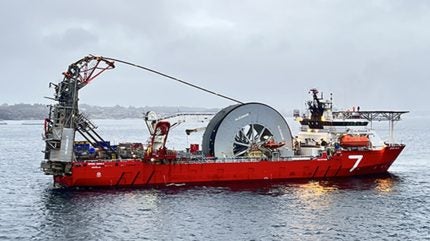
Subsea 7 has been awarded a contract by Equinor to serve as the technical service provider for the Northern Lights phase two project offshore Norway.
The scope of work to be carried out by Subsea 7 includes engineering, procurement, construction and installation (EPCI) of a 5km CO₂ pipeline, along with installation of integrated satellite structures, umbilicals, tie-in and pre-commissioning activities.
Subsea 7 will immediately begin project management and engineering work at its office in Stavanger, Norway.
Fabrication of the pipeline will be undertaken at Subsea 7’s spoolbase at Vigra, Norway, with offshore operations scheduled for 2026 and 2027.
Subsea7 Norway vice-president Erik Femsteinevik said: “We are excited to continue our collaboration with Equinor TSP and the Northern Lights’ owners Equinor, Shell and TotalEnergies on phase 2 of this ambitious and pioneering project.
“We look forward to working together to increase the development’s carbon storage capacity to a minimum of five million tonnes per year, and to support the continued development of a new value chain for Norway and Europe.”
This contract award has been described as “sizeable”, which according to Subsea 7’s definition is valued between $50m (£38.77m) and $150m.
The Northern Lights project, operational since September 2024, is an offshore carbon capture and storage initiative.
Developed by TotalEnergies, Equinor and Shell, with each holding a 33.3% stake, Northern Lights is claimed to be the world’s first project enabling industrial companies to transport and sequester CO₂ emissions.
It was approved by the Norwegian Government in 2020 and designated a Project of Common Interest by the EU.
The project’s first commercial agreement was signed in August 2022 with Yara to transport and store CO₂ from Yara Sluiskil, an ammonia and fertiliser plant in the Netherlands.
Northern Lights phase two is supported by a grant from the Connecting Europe Facility for Energy funding scheme.
Last month, TotalEnergies, along with Equinor and Shell, reached the final investment decision for the second phase, which will enhance the project’s transport and storage capacity from 1.5 million tonnes per annum (mtpa) of CO₂ to more than 5mtpa by 2028.



